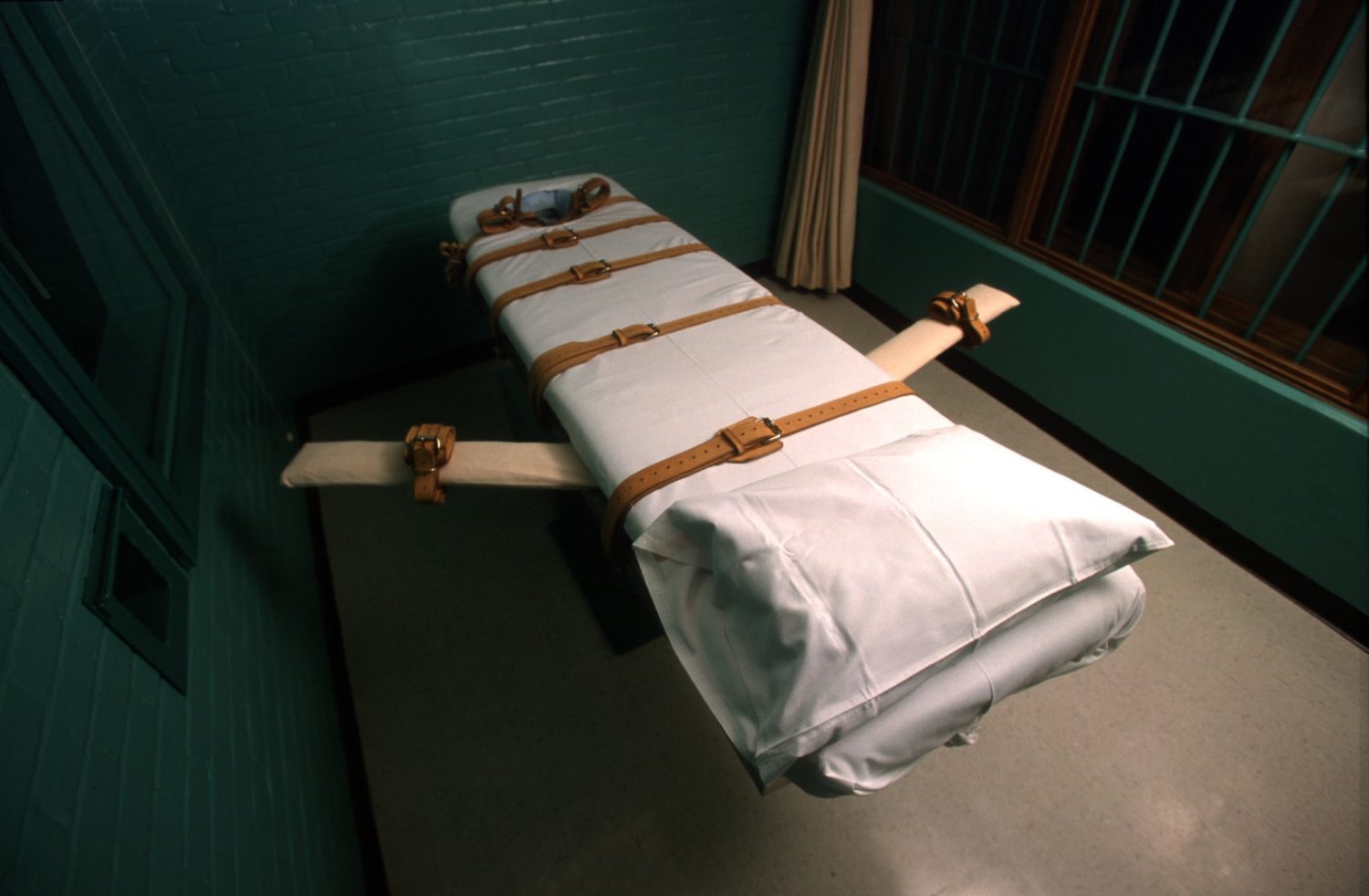Texas Plans to Execute a Man For A Murder He Didn’t Commit
Patrick Murphy didn’t even learn about the murder until later that day. A controversial law allows him to be executed anyway.

In 2000, Patrick Murphy and six others orchestrated the biggest prison escape in Texas history, seizing control of the guard tower and driving a prison truck out the gate of their maximum-security prison southeast of San Antonio. The group robbed two stores near Houston before attempting to steal cash and dozens of guns from a sporting goods store near Dallas on Christmas Eve. Murphy, who each time acted as a lookout from a parked van outside, radioed the others when he heard the robbery reported on the police scanner.
The leader of the group told Murphy to head to their appointed meeting spot, while the six others ran through emergency exits at the back of the store. There, they found police officer Aubrey Hawkins. Several of the men fired, shooting Hawkins 11 times, and running over his body as they escaped the scene.
Murphy is scheduled to die by lethal injection on Thursday evening for the murder. He didn’t pull the trigger; in fact, a co-defendant testified that he did not want to participate in any of the robberies. He didn’t even learn about the shooting until the group reunited later that day.
But none of that matters under Texas’s controversial law of parties.
He didn’t pull the trigger; in fact, a co-defendant testified that he did not want to participate in any of the robberies.
Under the law of parties, if people conspire together to commit a felony (in this case, armed robbery), and one person commits an additional felony in furtherance of the first one that could have been anticipated, “all conspirators are guilty of the felony actually committed, though having no intent to commit it.” In other states, a similar doctrine is known as felony murder. When Murphy and the others were apprehended in Colorado more than one month after the shooting, everyone was charged with murder, except for one member of the group who died by suicide before his arrest.
As Murphy’s execution approaches, state lawmakers are raising concerns about the law. Legislation pending in the Texas Senate and House would limit the death penalty for people convicted under the law of parties. Murphy’s attorneys at the University of Houston Law Center argued in a request for commutation or a 90-day reprieve this month that the bills’ passage “would constitute a new legal basis by which Murphy could seek to have his claim heard by the state courts.”
But on Tuesday afternoon, the Texas Board of Pardons and Paroles denied the petition by a vote of 7 to 0. The courts also denied Murphy’s request this week for injunctive relief in a separate argument that the state is violating his religious rights by not allowing his Buddhist spiritual adviser in the execution chamber. His attorneys appealed that denial to the US Supreme Court on Wednesday. His other remaining hope is his petition to Governor Greg Abbott, requesting a one-time 30-day reprieve (the governor cannot grant commutation unless it is recommended by the board).
If those avenues fail, Murphy will be executed tonight at 6 local time.
Other states are beginning to question the doctrine that allows courts to treat accomplices and getaway drivers the same as those who planned and carried out murder. Last year, California narrowed the scope of its similar “felony murder rule,” making it impossible to be convicted of murder, absent “major” participation in the killing or intent to kill. Since 1980, eight other states (Michigan, Kentucky, Hawaii, Vermont, New Hampshire, New Mexico, Arkansas, and Massachusetts) have eliminated or limited the scope of their felony murder laws.
In Texas, at least six people have been executed under the law of parties, despite not being the actual murderer, since the death penalty was reinstated in 1982. Most recently, Joseph Garcia, one of Murphy’s accomplices, was executed in December.
Like Murphy, Garcia petitioned for commutation, maintaining until his death that he did not shoot during the 2000 murder. Commutation in Texas is extremely rare: Just three people have had death sentences commuted to life imprisonment since 1982, most recently Thomas Whitaker in 2018. In 2007, the governor commuted the sentence of Kenneth Foster, who had acted as a getaway driver in a 1996 robbery-turned-shooting and was convicted of murder under the law of parties.
If Murphy’s execution moves forward, he will be the fifth member of the so-called Texas 7 to be executed for Hawkins’s murder. The final member is on death row.
Murphy’s attorneys wrote in his denied clemency petition: “Carrying out the execution of Patrick Murphy, who neither fired a shot at Officer Hawkins nor had any reason to know others would do so, would not be proper retaliation but would instead simply be vengeance.”
